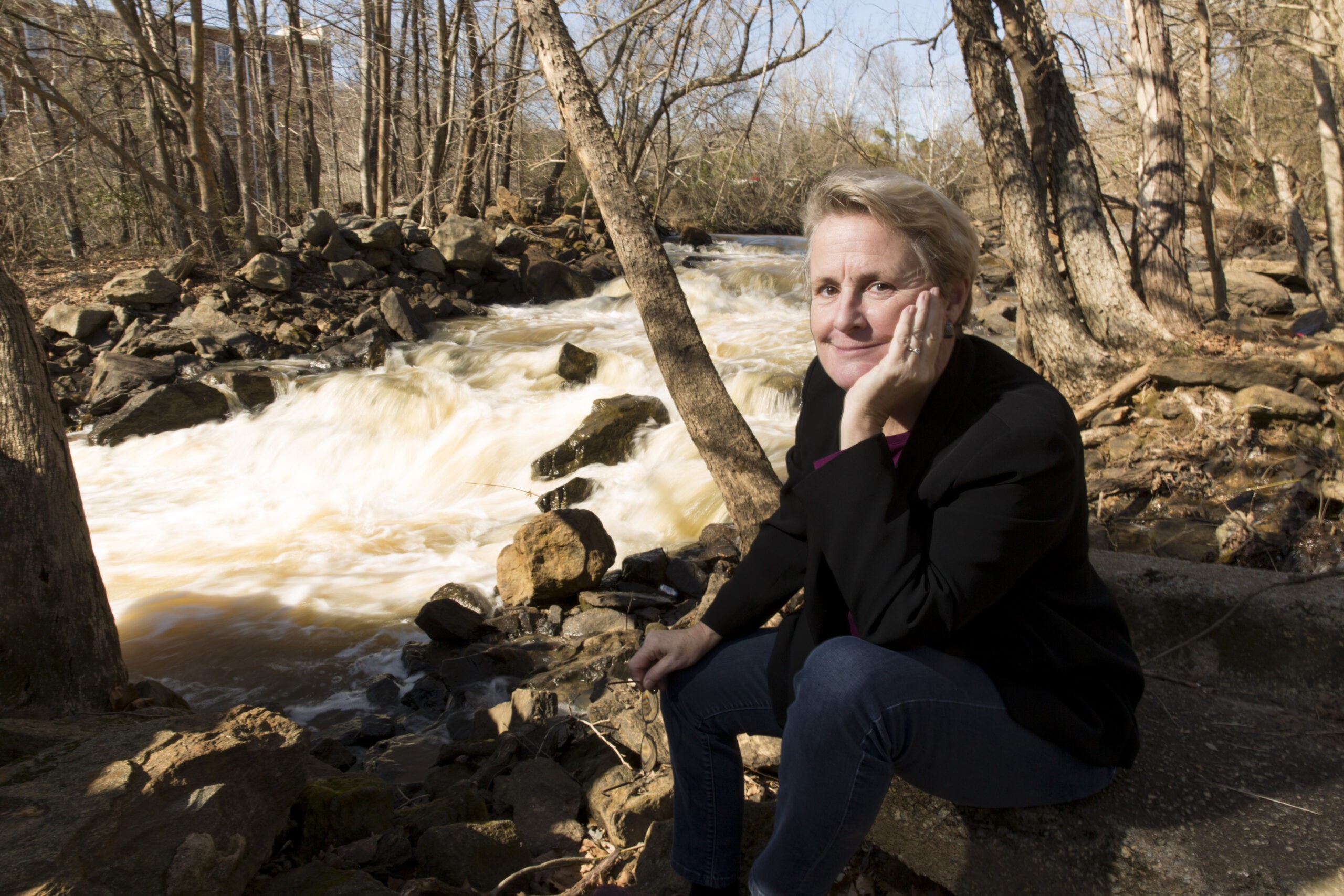Catherine Pringle’s path to freshwater ecosystem ecology was a sure one.
“From childhood, I’ve been fascinated by nature, spending hours poking around in streams and creeks as a kid,” she said.
In the years since, the distinguished research professor has had a decorated career, from earning UGA’s creative research medal to publishing 197 peer-reviewed journal articles, over 50 book chapters and symposium proceedings, and co-editing three books. She is a past-president of the Society for Freshwater Science and a fellow of the American Association for the Advancement of Science.
But of all her accomplishments, the facet of her career she’s most proud of is her students. A total of 23 doctoral and 22 master’s students have graduated from the Pringle Lab, and she currently serves as major advisor for a final doctoral student.
She has found teaching incredibly rewarding. Equally gratifying, according to Pringle—who retires in June—is what her students have accomplished during and following their graduate studies. “They have gone on to have so many wonderful careers in aquatic sciences, conservation and related areas,” she said.
Alumni have gone on to work in government, with the Environmental Protection Agency, the U.S. Geological Survey and the U.S. National Parks Service; and in the not-for-profit sector, with former students in management positions at the Nature Conservancy, the Children’s Eternal Rainforest in Costa Rica, and other NGOs. Many have continued in academia, and 13 Pringle lab alumni are professors or in tenure-track positions.
Research
Many of her students have contributed to impressively long-term studies in Costa Rica, Puerto Rico and North Carolina.
For over three decades, Pringle served as the lead investigator on a long-term research in environmental biology (LTREB) NSF research project in Costa Rica. The project has evolved over 30 years from assessing landscape patterns of ground- and surface-water interactions to examining climate-driven changes and acidification in lowland Neotropical streams. Now a co-investigator, Pringle says it’s wonderful to know that the project will continue under the leadership of Alonso Ramirez and Marcelo Ardon, two Ph.D. alumni from her lab (and Costa Rican nationals) who are now professors at North Carolina State University.
Research in Puerto Rico and North Carolina was supported by two large collaborative long-term ecological research (LTER) projects funded by the NSF. Her lab has also conducted studies in Georgia, Panama, Trinidad, Madagascar and Kosrae (Micronesia).
Research funding through the years was primarily from the NSF, USDA Forest Service and EPA, but she also received funding from the Nature Conservancy, Conservation Food and Health Foundation, National Geographic Society, Rainforest Alliance and Natural Resources Conservation Service.
The focus of the bulk of her prolific research, freshwater ecosystem ecology always seemed like a good fit for Pringle. “The severity of local and global environmental issues drew me to conservation and applied studies,” she shared. An over-arching goal of her lab has been to link research on stream ecosystems with conservation through resource management applications, environmental outreach and synthesis activities.
Odum and beyond
Pringle arrived at the Odum School of Ecology in 1993, joining Ron Carroll and Carol Hoffman in developing one of the first graduate-level conservation programs in the country, the Conservation Ecology & Sustainable Development (CESD) master’s program. She chaired the Steering Committee of the CESD master’s program from 1993-2019 until it transitioned into the Integrated Conservation and Sustainability (ICAS) M.S. Program.
A major change that Pringle is glad to have watched unfold is the integration of conservation across both graduate and undergraduate curricula at OSE and across the university. “I’m so happy that conservation is such an integral part of many programs at UGA,” said Pringle. As one example, the Integrative Conservation (ICON) Ph.D. Program includes faculty and graduate students from five different disciplines or units at UGA (anthropology, ecology, geography, natural resources and marine science).
She’ll retire in June after 30 years at the university, and Pringle will continue to serve in an emeritus capacity. “I’m really looking forward to a rich continued relationship with UGA and the Odum School of Ecology!” said Pringle.

